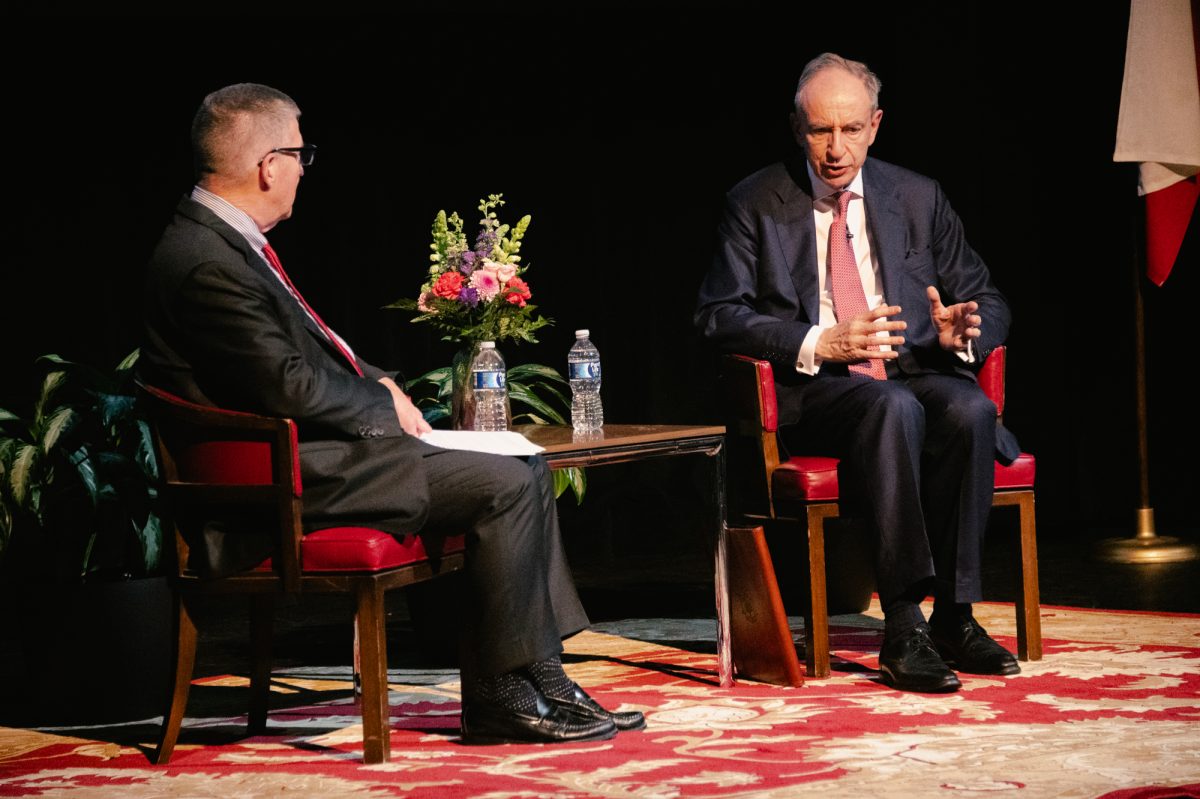After an hours long debate at the last Student Senate meeting, changes have been made to a bill addressing treatment of Hindu students on campus.
The Student Senate met on Wednesday, Oct. 20 and discussed the Support and Recognition for the Hindu Aggie Community resolution, which was brought up at the previous meeting on Oct. 6 in light of Gov. Greg Abbott’s Sept. 21 proclamation recognizing October as Hindu Heritage Month. The resolution was edited in committee to take into account the Oct. 6 debate, with an eventual passage in Wednesday’s meeting with a vote of 29-23.
“The 74th Session of Texas A&M Student Senate supports the right of Hindu Aggies to exist and be accepted in their identity, to feel welcome and fully participate in campus life, and gather, free from hate or discrimination,” the resolution reads.
The resolution’s debate was contentious in the past two meetings due to wording which some Senate members found too accusatory toward Christian students. The language of the resolution was reworded at Wednesday’s meeting.
“While one of Texas A&M University’s Core Values is Respect, many Hindu students who gave testimony to the Student Senate testified that they all have faced oppression by some fellow Aggies, who mostly affiliate with Christianity,” the amended text reads.
The authors of the resolution, including biochemistry senior Dang Dang, said the changes reflected the purpose of this resolution, which was not to divide students, but to bring attention to an issue many students were not aware of.
“We brought this issue up to educate everyone that this is what is happening on campus,” Dang said.
Most of the debate over this resolution focused on another addition to the resolution. The special committee tasked with editing the resolution added the request that the resolution be sent to every student organization on campus affiliated with Christianity. Management senior Yovanka Gonzalez, member of the off-campus caucus, argued this addition distracted from the purpose of the resolution.
“I want to clarify that this legislation was never and never will be something that was made to attack or target Christian organizations on campus but, as many of you know, it already has been unfortunately misinterpreted by many people,” Gonzalez said.
The amendment to the resolution passed unanimously. Other amendments made to the resolution included changing the word “oppression” to “harassment and discrimination” to better represent the experiences many Hindu students had lived.
Political science sophomore and chair of the Diversity and Inclusion Committee Tiffany Ufodiama said the passing of this resolution showed to some the effect the Student Senate can have.
“Just remember that the point of the Student Senate is to represent the entire student body, and those people who need help right now are people from the Hindu community,” Ufodiama said.
Due to the popularity of the resolution from the previous debate, an abundance of students attended the meeting to watch the Senate members debate. With the amount of students in attendance, there was not enough room in the Senate chamber for everyone who showed up, creating the need for a second watching room to be arranged.
Two speakers, nuclear engineering sophomore Maanya Gulati and Anu Khatri, president of the Hindu Students Association, shared their experiences as Hindu students on A&M’s campus and the effect this recognition will have. Gulati and Khatri both spoke about how Hindu students have faced discrimination inside the classroom as well as outside.
“In a religion class I took last semester, an essay prompt conflated putting pennies on [the statue of Sullivan Ross] to the practice of leaving offerings on Hindu deities,” Gulati said.
Gulati said even before beginning her freshman year at A&M, she was harassed by fellow Aggies, constantly telling her to go to different churches or Bible studies. She said, in her opinion, there is a drastic difference between evangelizing and harassment. She defined this line based on both sides consenting to the conversation.
“I think [the line] is drawn when there is consent, so basically, if somebody comes up to me and asks if it’s OK to speak about what they wish to speak about,” Gulati said.
Constantly texting someone about different religious events when they show no interest falls on the harassment side of the line, Gulati said.
International affairs senior Alexia Hernandez said the fact the resolution took two meetings totaling more than four hours of debate to pass shows this is a major issue within the Aggie community and within the Student Senate.
“It is really interesting to me how in the first instance of accountability toward a culture of unwelcoming underrepresented religions there is all of this debate and defensiveness instead of just coming to the realization that this has been an issue for a very long time,” Hernandez said. “And it’s really telling that this body is so defensive to such a little thing that has been confirmed to be true and is not accusatory toward an entire group.”
In addition to the Hindu resolution, the Oct. 20 meeting swore in the newly elected freshman senators. A bill seeking to increase the student fee cap for Student Health Services was also presented and will be voted on at the next meeting on Nov. 3.










